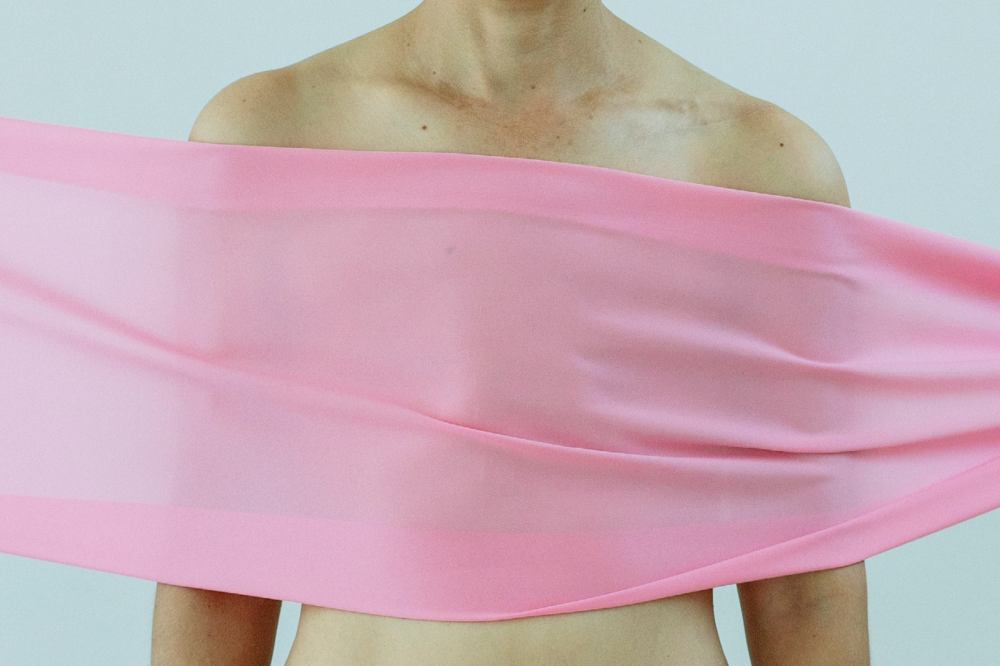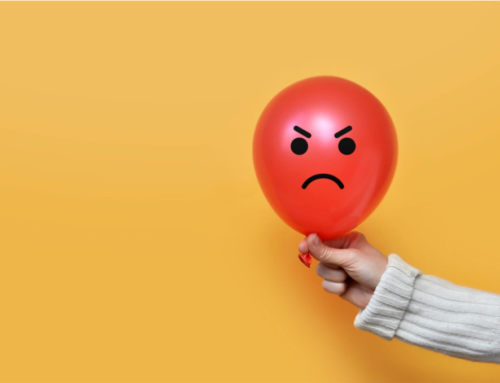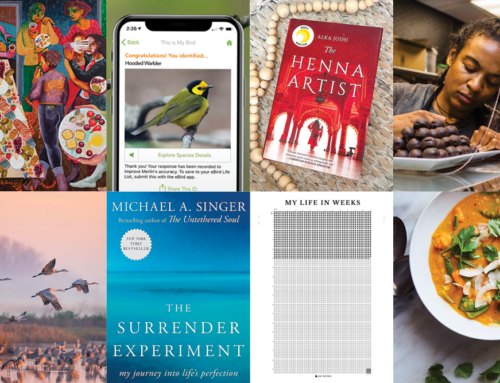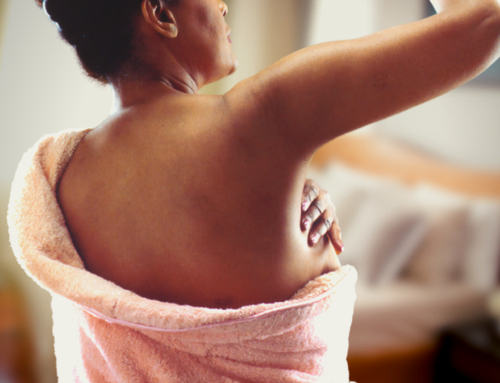Most women who develop breast cancer do not have a family history of the disease. Roughly 15% of women diagnosed with breast cancer have a first-degree female relative (mother, sister, or daughter) with the disease. Some women are more at risk because of other less serious genetic issues, a risk that can be managed and offset by adopting some lifestyle changes. In fact, there’s plenty of things we can do to lower our risk of breast cancer.
In Chinese medicine, it is believed that there are four factors that can contribute to breast cancer:
-
Stagnation – lack of flow of qi and blood which leads to denser tissue over time
-
Heat and Toxicity – presence of external toxins such as cigarette smoke, environmental toxins or chemical estrogens
-
Deficiency – failure of your body’s immune system to clean up abnormal cells
-
Damp accumulation – a way of describing excess fat cells
Accordingly, Eastern medicine cancer prevention focuses on moving qi and blood, protecting the body from toxicity, clearing damp accumulation, and supporting the body’s natural defenses. While Western medicine comes from a different perspective, both Eastern and Western medicine have come to similar conclusions.
1. Support your liver.
Some breast cancers grow in response to excess estrogen. It is therefore beneficial to support your liver, which is tasked with processing estrogen. For example, a liver preoccupied with processing alcohol may not be able to process estrogen in the same way.
-
Limit alcohol. There is a strong link between breast cancer risk and alcohol consumption. In fact, research has shown that drinking as little as one unit of alcohol a day raises breast cancer risk by 5%. Try to limit alcohol consumption to 3 – 4 drinks a week.
-
Stimulate the liver by using lemon juice on bitter greens such as dandelion greens, endive and radicchio.
-
Take liver-supporting herbs such as dandelion root, milk thistle, burdock, artichoke and turmeric.
-
B vitamins also help the liver and can be consumed in the form of whole foods (such as lentils, rice bran, and blackstrap molasses) or supplements. in particular, Vitamin B6 enhances the breakdown and removal of estrogen.
-
Flaxseed oil improves liver function. Flaxseed is particularly high in a phytoestrogen called lignan, which decreases estrogen production and may inhibit the growth of some breast cancers. In order to reap the full benefits of flax seeds, they must be ground up.
2. Limit exposure to estrogen and environmental toxins.
Breast cancer risk increases in relation to the amount of estrogen you are exposed to during your lifetime. However, controlling the amount of estrogen you take in is difficult as chemical estrogens have ways of entering our food and water supply. For example, agricultural chemicals and pesticides mimic the activity of estrogen, making estrogen receptor sites more sensitive. Urine, contaminated with high levels of residual estrogen from birth control pills, can seep back into water supplies. Plastic wrap and plastic food containers can leach estrogen-like compounds into our food.
-
Unless considered imperative by your doctor, it is advisable to avoid estrogen replacement therapy for menopausal symptoms.
-
Avoid exposure to pesticides.
-
Avoid hormone-treated meat and dairy.
-
Eat as much organic produce as you can.
-
Avoid refined and hydrogenated oils, aka trans-fats.
-
Eat cruciferous vegetables, such as broccoli, cabbage, cauliflower, kale, and Brussels sprouts. These contain diindolylmethane (DIM), a phytonutrient that supports the enzymes that improve estrogen metabolism. Research has shown that DIM helps your body process estrogen so that less is free-floating in your bloodstream. In fact, researchers are looking into a broccoli-based pill to help prevent breast cancer.
-
Use glass containers instead of plastic containers and plastic wrap.
3. Maintain general wellness.
In Chinese medicine, it is believed that cancers grow when the body has a deficiency and has a weakened immune system. Similarly, Western medical research shows that cancerous cells proliferate when the body is overwhelmed and not able to mount a good defense. Accordingly, current cancer research focuses on supporting the body’s immune system as a way of combating cancer.
-
Get regular exercise. Research has shown that regular exercise can reduce the risk of breast cancer by 20%. In Eastern medicine, exercise is considered the most effective means of moving qi and blood and preventing stagnation, a factor that contributes to cancer.
-
A low fat, high fiber, mostly vegetarian diet can reduce the amount of free-floating estrogen in the bloodstream.
-
Try to maintain a healthy weight. It is clear that there is a link between obesity and breast cancer as research has shown that being 22lbs overweight increases breast cancer risk by 18%. Even more so after menopause. This is due to the fact that excess fatty tissue causes an increase in the amount of circulating estrogen.
-
Try kicking unhealthy habits such as smoking.
-
Be vigilant about early detection of breast cancer. After the age of 40, have mammograms every year and examine your breasts once a month, preferably the week after a period. If any breast changes are detected, such as a lump or skin changes, contact your doctor.
-
Take a vitamin D supplement, which seems to have a protective effect as research indicates that breast cancer is higher in women with low vitamin D.
4. Move the breast’s blood and qi.
From an Eastern perspective, lumpy breasts, also known as fibrocystic breasts, means that there is stagnation in the breast tissue. Western research suggests that having fibrocystic breasts does not increase your risk of breast cancer unless some of the cells are already atypical. In Chinese medicine, this stagnation needs to be combined with other factors such as toxicity and weak immunity in order for cancer to develop. Therefore, it is recommended to move qi and blood in the breast as a preventative measure against breast cancer.
-
Regular exercise is the best way of moving qi and blood.
-
Regular acupuncture can move qi and blood.
-
Fibrocystic breasts or even breasts that are tender premenstrually can be treated with herbal formulas.
-
Tender breasts or benign breast lumps can be relieved by applying a castor oil pack to the breast once a week, which invigorates the blood and helps the lymphatic system move debris. Castor oil pack: apply castor oil to breasts, cover the area with a paper towel or a clean cotton cloth followed by plastic wrap, then place a heating pack or hot water bottle on top. This should be warm, not scalding. If it is too hot place a towel between the hot pack and the plastic wrap.
5. Explore a key emotion.
In Chinese medicine, both benign and malignant breast lumps are associated with liver qi stagnation, which is associated with repressed anger. Accordingly, some research has shown a correlation between anger and cancer, such as people who suppress anger have a 70 percent higher risk of dying from cancer. Try addressing repressed anger, resentment and hate through journaling, exercise, breathwork, or therapy.
Adapted from 5 Ways to Reduce your Risk of Breast Cancer by Dr. Jill Blakeway, DACM, LAC.




